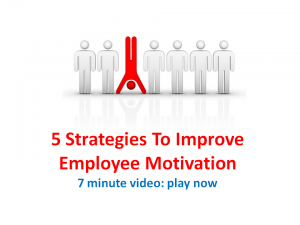Managers and leaders play a significant role in employee engagement levels, and when leaders aren’t pulling their weight, the whole team is sure to suffer. According to recent Gallup research, “managers account for at least 70% of the variance in employee engagement across business units.” Manager involvement and leadership skills with their employees are greatly influencing the global engagement level of just 13 percent. Managers play such a crucial role in employee engagement, and yet only one in 10 possess the necessary skills and natural talent to properly lead a team. Because of this, one out of two employees has left a company specifically because of their direct supervisor, and the wrong candidate has been promoted to leadership about 80 percent of the time. To improve these numbers, leaders on all levels can implement some team and employee development strategies by focusing on a strong team for success that offers the organization the greatest return on its investment.
Implement strengths-based development programs.
Strengths-based development programs are different than other training programs because rather than constantly reprimanding employees for their mistakes or trying to fix what’s wrong with them, leaders focus on employees’ strengths and concentrate on developing what’s right. The idea is that employees’ potential stems from their strengths, and they are more likely to be happier and more productive in their positions if they are actively using skills that they are innately good at. This goes for both team members and leadership, as leaders are promoted based specifically on their leadership skills, rather than their past performances in non-leadership roles. Benefits of this type of development include increased employee engagement, sales and profit, as well as decreased turnover rates and safety incidents. A good example of this is the TIGERS Leadership Training that teaches managers to develop and engage their teams for optimum results using strengths in the organization’s group dynamics to improve weaker dynamics and team relationships.
Switch your focus to top performers.
A lot of team development and leadership time is spent on lower performing employees, but for the greatest return on investment, leaders should instead spend most of their time developing top performers while checking in with lower performers to discovered what worked best for them during the week. Many leaders believe that by spending more time with lower-performing team members, they will be able to motivate them to become top performers. And while this type of development is important, no employee should be overlooked. By spending so much time with these team members, top performers often feel overlooked and undervalued, and their potential may be going to waste. Leaders should take the time to coach and recognize their top performers for their efforts, as well as identify development opportunities with these employees to keep them engaged and encouraged to move up in the company.
Offer team learning opportunities.
Many employees view advancement opportunities within a company as more valuable than compensation when rating a company as a great place to work. While competitive compensation is important, employees believe that a workplace that places value on and offers learning opportunities for its employees is the most important consideration for choosing a job. All companies can capitalize on this fact, either through internal development programs or external opportunities, such as The 6 Principles That Build High Performance Teams On Demand Leadership Program offered through the TIGERS Success Series.
Create a culture of “us.”
The concept of building a better” us” or a sense of “we” is changing the workplace environment for the better, and most companies benefit from jumping on board. The idea of US comes from Dianne Crampton’s book, TIGERS Among Us — Winning Business Team Cultures and Why They Thrive, and its basic premise is that all employees, from the top down, need to replace their competitiveness against business competitors and not internally between one another. This means that all employees put the needs of other employees above their own needs, which creates a culture of unity and selflessness that leads to stronger teams and better working environments for everyone involved. Through this practice, team members develop a strong sense of loyalty to their coworkers, leaders and companies, and everyone feels support from everyone around them. Through this practice, both leaders and employees are better off, including customers, clients, vendors and everyone else involved with the company.
Your team members are your greatest asset for success, and with only 13 percent of employees engaged worldwide, it’s essential that leaders focus on team development strategies and training that offers them the greatest return on investment. Managers play a crucial role on employee engagement levels, and when the wrong leader is put in place, the whole company suffesr. To create a successful working environment, leaders must implement strengths-based development programs; switch their focus to top performers; offer learning opportunities to employees; and create a culture of “us” rather than “me.” With cooperative and collaborative team building strategies, leaders create successful work cultures that value employees while enjoying higher productivity and lower turnover.
Here are some additional resources that contribute more to this conversation.
- Strengths-Based Employee Development: The Business Results
- Focus on Your Top Talent for Maximum Staff Development ROI
- The TIGERS Team Behavior Profile
- The Learning Curve Is The Earning Curve
- TIGERS Among Us – Winning Business Team Cultures and Why They Thrive
- On demand team development training
- TIGERS Leadership Training
Copyright TIGERS Success Series, Inc.
 About TIGERS Success Series, Inc.
About TIGERS Success Series, Inc.
TIGERS® Success Series provides a comprehensive and robust system for propelling both your work environment and profitability forward at warp speed. We specialize in workplace enrichment and employee re-invigoration. Our proprietary leadership training workshops and the TIGERS Team Behavior Profile(c) are based on the six principles we have found to be the right mix to make this happen. The six principles are Trust, Interdependence, Genuineness, Empathy, Risk and Success. Born from our many years of business, psychology, and educational group dynamic research, we instill and sustain behaviors that improve work group performance for measurable ROI.
Since 1987, TIGERS has served committed leaders who desire more cooperation among departments, teams, managers and individual employees. This heightened level of cooperation leads to improved revenue, purpose, commitment and impact. Employees quit companies because they don’t get along with leaders and co-workers. Work culture refinement and behaviors that build strong relationships reverse this trend remarkably fast. For more information call 1+541-385-7465 or visit https://corevalues.com .
